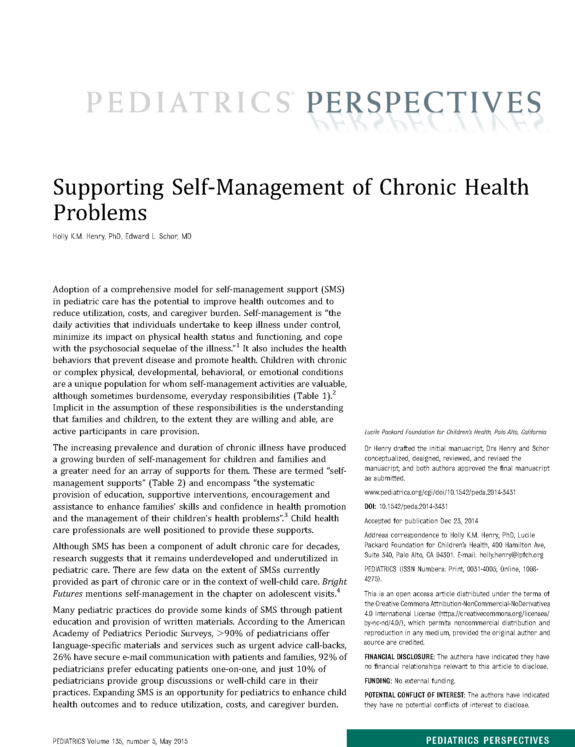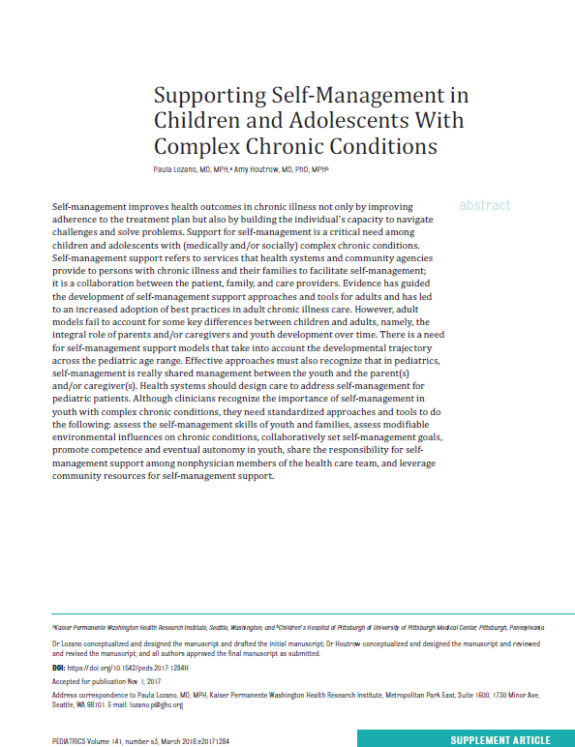Children with chronic and complex medical conditions don’t spend their lives in hospitals. Though hospitalizations may be part of their experience, most of their time is spent in the “real world,” where many of the vital services and supports provided to inpatients and their families are not readily available.
An article in the May 2015 edition of Pediatrics provides insights into how pediatric practices can help families assume heightened responsibility for their children’s care at home. By offering “self-management” supports to patients and their families, practices can enhance the skills and confidence that families need to cope with chronic conditions on a daily basis.
Self-management encompasses activities that help patients keep their illness under control, minimize its impact on physical health status and functioning, and cope with its psychosocial consequences. Self-management also includes behaviors that prevent disease and complications and promote health.
Self-management practices are well established in adult medicine, but are not as common in pediatric care. Yet as the population of children living at home with chronic conditions grows, an increasing number of families are finding themselves responsible for health management, often with little support from their pediatricians.
Although many providers offer some supports, such as written materials or patient education, evidence from chronic care in adults shows that expanding these supports can enhance health outcomes while reducing utilization, costs and caregiver burden.
Pediatric practices could provide health information, peer coaching, facilitated communication and technological skills to support day-to-day care, the article suggests. It also outlines a number of systemic changes that could increase the ability of practices to provide self-management supports, including suggestions for the role of various providers within a practice, staffing, scheduling, and quality improvement efforts.
The article proposes that self-management supports be incorporated into the child health care delivery system as an essential component of chronic care, but the authors note that this will not happen unless policymakers and insurers provide incentives to patients, families and providers.



